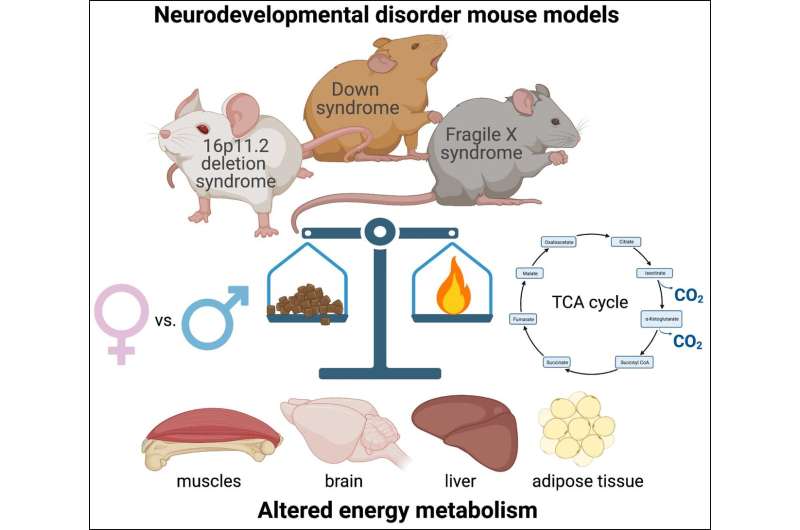
Mouse models of neurodevelopmental disorders possess unique, sex-specific metabolic dysfunctions, according to a new study in eNeuro. Understanding the unique metabolic effects of each disorder in both animal models and humans may lead to more personalized treatments and diagnostic methods.
Any disorder affecting the brain also impacts the body. People with neurodevelopmental disorders—including Down syndrome and autism spectrum disorders—are at increased risk for developing diabetes, obesity, and hypertension. Yet the impact of these three disorders on metabolism has not been studied.
Menzies et al. measured the resting energy metabolism of three neurodevelopmental disorder mouse models: Down syndrome, 16p11.2 deletion syndrome, and Fragile X syndrome. The mice spent 48 hours in a special cage that tracked gas exchange, activity, food consumption, and heat production. The research team also measured metabolites in the blood. Despite similar food consumption and physical activity levels, each mouse model exhibited a unique, sex-specific metabolic signature. The signatures varied in terms of energy expenditure, fat and carbohydrate utilization, body composition, and metabolite levels.
Source: Read Full Article
